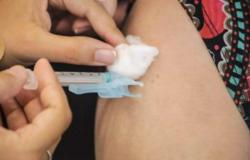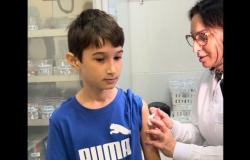Last Sunday, 31st, the presenter Ana Maria Braga remembered in Fantastic the diagnosis of anal cancer in the early 2000s. According to the presenter, the tumor appeared as a result of HPV.
The acronym refers to the human papillomavirus, responsible for sexually transmitted infection (STI) most frequent in the world, according to the Ministry of Health. Also according to the folder, HPV transmission occurs through direct contact with the infected skin or mucosa, that is, through touch, vaginal or anal penetration, or contact of the virus with the mouth. More than 200 subtypes of the virus have been identified.
Around 70% to 80% of the population comes into contact with HPV at some point in their lives. Although most virus infections are resolved by the immune system, some persist, which can result in the development of lesions and, eventually, the development of cancer.
Ana Maria said she discovered anal cancer at an advanced stage and with little chance of recovery. Despite this, the presenter recovered and, today, encourages vaccination against the virus.
What is anal cancer?
It is a malignant tumor that affects the anal canal and the external edges of the anus. It is rare and, according to National Cancer Institute (Inca)represents 1 to 2% of colorectal tumors (involving the colon and rectum).
Oncologist Virgílio Souza, a specialist in gastrointestinal tumors at the AC Camargo Cancer Center, in São Paulo, highlights, however, that anal canal cancer has important specificities in relation to colon and rectal cancers and, therefore, must always be analyzed individually.
What can cause anal cancer?
The main cause of this type of cancer, according to Souza, is precisely infection by the HPV.
“You Patients with HPV have a 10 times greater risk of developing this type of cancer. Around 90% of patients diagnosed with anal canal cancer have HPV”, he describes.
There are, however, other factors that can increase the likelihood of this type of cancer appearing, according to the Ministry of Health. They are:
- Other sexually transmitted infections (STIs), such as HIV, condylomatosis, gonorrhea, genital herpes and chlamydia;
- Practice of anal sex;
- Smoking;
- Chronic anal fistula (wound);
- Precarious hygiene conditions;
- Being an immunocompromised patient who has undergone a kidney or heart transplant.
What are the main symptoms of anal cancer?
According to the oncologist at AC Camargo Cancer Center, the main symptoms of this type of cancer are:
CONTINUES AFTER ADVERTISING
- Blood in the stool;
- Pain when evacuating;
- Pain in the anus region;
- Changes in bowel habits.
“This does not mean, however, that the appearance of these symptoms necessarily indicates cancer. Still, it’s worth investigating,” he informs.
The Ministry of Health points out other signs that deserve attention: itching, odor, unusual secretions, wounds in the region and difficulty controlling the exit of feces.
What is the treatment like?
It depends on the stage at which the tumor is detected, according to the specialist. “The sooner this occurs, the less invasive the treatment will be, and the greater the chances of recovery,” he highlights.
Still according to Souza, in approximately 85% of cases the treatment consists of a combination of chemo and radiotherapy and have a high chance of success.
In cases where the tumor is more advanced and does not respond to these therapies, surgical procedures may be necessary. “These may involve amputation of the anal region to remove the tumor. As a result, the feces will need to be removed through a colostomy bag connected to the intestine,” he explains. But, reinforces the doctor, this option is for a minority of patients.
How to prevent anal cancer?
As this type of cancer usually occurs due to HPV infection, vaccination against this virus is the main form of prevention, according to Souza.
The HPV vaccine has been available for ten years in the Unified Health System (SUS) for boys and girls aged 9 to 14, immunosuppressed adults (with HIV, cancer or transplants) up to 45 years old and victims of sexual abuse up to the same age .
In addition to vaccination, another fundamental strategy in combating HPV and, consequently, anal cancer, is the use of condoms. However, as this method is not 100% effective in preventing the virus, according to the Ministry of Health, it is important to combine the use of condoms with vaccination.
Tags: Anal cancer find main symptoms tumor Ana Maria Braga treated
--





